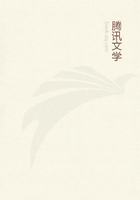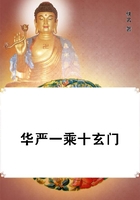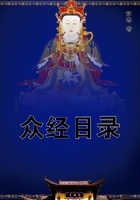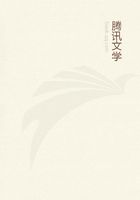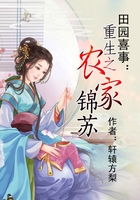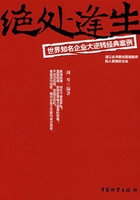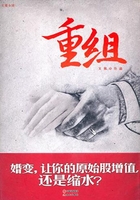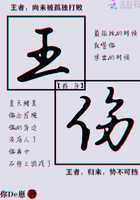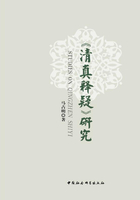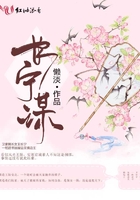It is so, perhaps, in all countries; perhaps in all, men are most ignorant of the foreigners at home. John Bull is ignorant of the States; he is probably ignorant of India; but considering his opportunities, he is far more ignorant of countries nearer his own door. There is one country, for instance - its frontier not so far from London, its people closely akin, its language the same in all essentials with the English - of which I will go bail he knows nothing. His ignorance of the sister kingdom cannot be described;it can only be illustrated by anecdote. I once travelled with a man of plausible manners and good intelligence - a University man, as the phrase goes - a man, besides, who had taken his degree in life and knew a thing or two about the age we live in. We were deep in talk, whirling between Peterborough and London; among other things, he began to describe some piece of legal injustice he had recently encountered, and I observed in my innocence that things were not so in Scotland. "I beg your pardon," said he, "this is a matter of law." He had never heard of the Scots law; nor did he choose to be informed. The law was the same for the whole country, he told me roundly; every child knew that. At last, to settle matters, I explained to him that I was a member of a Scottish legal body, and had stood the brunt of an examination in the very law in question. Thereupon he looked me for a moment full in the face and dropped the conversation. This is a monstrous instance, if you like, but it does not stand alone in the experience of Scots.
England and Scotland differ, indeed, in law, in history, in religion, in education, and in the very look of nature and men's faces, not always widely, but always trenchantly. Many particulars that struck Mr. Grant White, a Yankee, struck me, a Scot, no less forcibly; he and I felt ourselves foreigners on many common provocations. A Scotchman may tramp the better part of Europe and the United States, and never again receive so vivid an impression of foreign travel and strange lands and manners as on his first excursion into England. The change from a hilly to a level country strikes him with delighted wonder. Along the flat horizon there arise the frequent venerable towers of churches. He sees at the end of airy vistas the revolution of the windmill sails. He may go where he pleases in the future; he may see Alps, and Pyramids, and lions; but it will be hard to beat the pleasure of that moment.
There are, indeed, few merrier spectacles than that of many windmills bickering together in a fresh breeze over a woody country; their halting alacrity of movement, their pleasant business, making bread all day with uncouth gesticulations, their air, gigantically human, as of a creature half alive, put a spirit of romance into the tamest landscape. When the Scotch child sees them first he falls immediately in love; and from that time forward windmills keep turning in his dreams. And so, in their degree, with every feature of the life and landscape. The warm, habitable age of towns and hamlets, the green, settled, ancient look of the country; the lush hedgerows, stiles, and privy path-ways in the fields; the sluggish, brimming rivers; chalk and smock-frocks;chimes of bells and the rapid, pertly-sounding English speech -they are all new to the curiosity; they are all set to English airs in the child's story that he tells himself at night. The sharp edge of novelty wears off; the feeling is scotched, but I doubt whether it is ever killed. Rather it keeps returning, ever the more rarely and strangely, and even in scenes to which you have been long accustomed suddenly awakes and gives a relish to enjoyment or heightens the sense of isolation.
One thing especially continues unfamiliar to the Scotchman's eye -the domestic architecture, the look of streets and buildings; the quaint, venerable age of many, and the thin walls and warm colouring of all. We have, in Scotland, far fewer ancient buildings, above all in country places; and those that we have are all of hewn or harled masonry. Wood has been sparingly used in their construction; the window-frames are sunken in the wall, not flat to the front, as in England; the roofs are steeper-pitched;even a hill farm will have a massy, square, cold and permanent appearance. English houses, in comparison, have the look of cardboard toys, such as a puff might shatter. And to this the Scotchman never becomes used. His eye can never rest consciously on one of these brick houses - rickles of brick, as he might call them - or on one of these flat-chested streets, but he is instantly reminded where he is, and instantly travels back in fancy to his home. "This is no my ain house; I ken by the biggin' o't." And yet perhaps it is his own, bought with his own money, the key of it long polished in his pocket; but it has not yet, and never will be, thoroughly adopted by his imagination; nor does he cease to remember that, in the whole length and breadth of his native country, there was no building even distantly resembling it.

